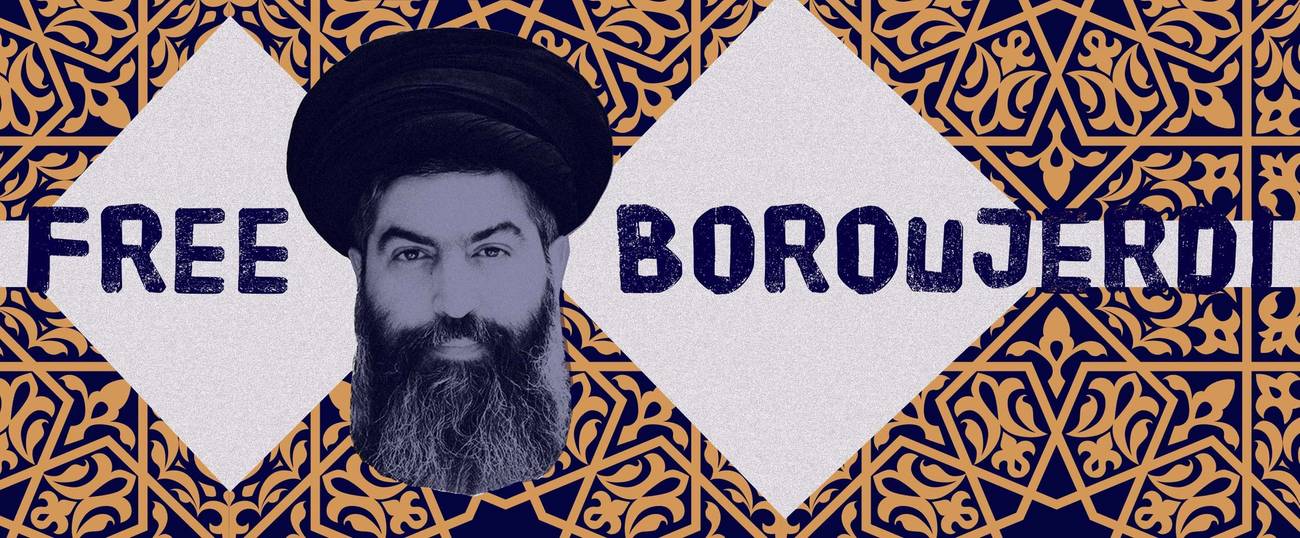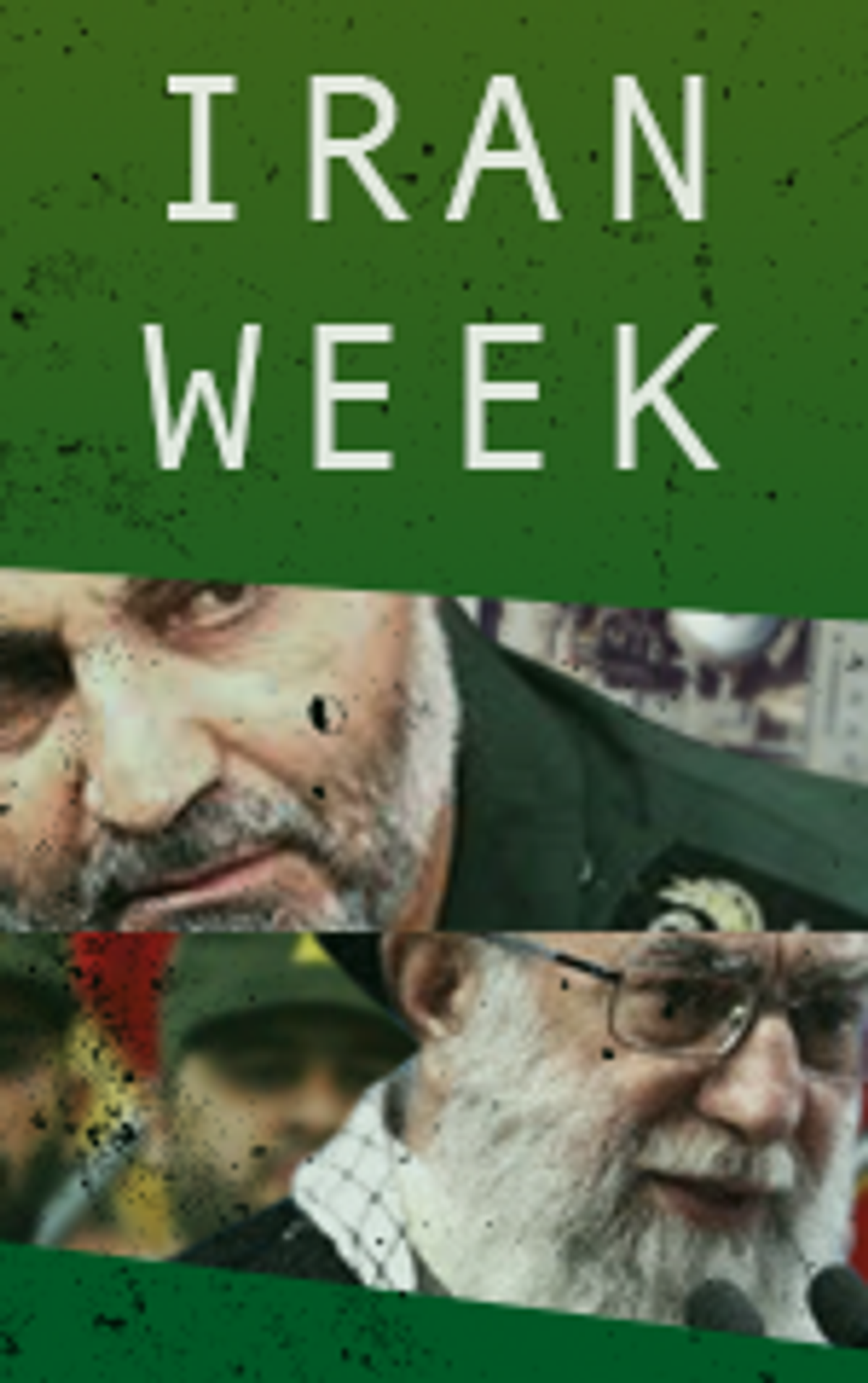Free Iran’s Mandela, Ayatollah Boroujerdi
The prominent cleric spent 11 years in prison for preaching religious tolerance, equality, and non-violence inside the repressive theocracy




What sets Ayatollah Hossein Kazemeini Boroujerdi apart from other ruling clerics of Iran are the views and values he deeply adheres to. His beliefs have made him a target of continuous and excruciating methods of torture. He has been sentenced to be executed. So, what are these views and values?
Unlike Iran’s other ruling clerics, Ayatollah Boroujerdi, 58, strongly believes in the separation of religion from the state. This bucks a traditional Shia view regarding the intersection of politics and religion. He also rejects the notion of velayat-e faqih, a clerical rule in politics that indicates an ayatollah or imam should preside over a nation. This alone creates a complete and violent rift between himself and the government.
To further strain matters between himself and a government focused on controlling the minds and beliefs of its captive population, Ayatollah Boroujerdi robustly supports religious freedom, opposes anti-Semitism, and established a movement in which people from different religions, including Christians, Jews, Zoroastrians, Baha’is, Sunni, and Shia, could gather together and celebrate peacefully. He has founded charities to help the poor regardless of their religious or political beliefs, and advocates for human rights, democratic values, peace, women’s rights, social justice, freedom, and equality. His core philosophy is centered on opposing any form of violence. He has called for total acceptance and application of the Universal Declaration of Human Rights, and he vehemently rejects terrorism and radical Islam.

Although Ayatollah Boroujerdi was not politically active, the government and dominant clergy establishment perceived him as a threat for his views and increasing popularity. The more support he gained, the larger the target on his back became. He was brought to Iran’s Special Clerical Court, which according to Amnesty International is “a highly secretive body which reports directly to the supreme leader and is independent of the judiciary.” He was denied access to a lawyer. He was harassed repeatedly and finally, in 2006, according to Amnesty International, he was sentenced to death after being found guilty on 30 ambiguous charges including “waging war against God” (moharebeh); acts against national security; publicly calling political leadership by the clergy (velayat-e faqih) unlawful.
Due to his popularity and pressure from the international community, the Iranian government reduced his death sentence to 11 years in prison. However, the threat of his execution still hangs over his head, as his sentence could change at any moment according to the whim of the clerical regime.
‘It shall be noted by future generations that I have made the world aware of the dire situation in Iran numerous times.’
The years that Ayatollah Boroujerdi spent in prison were painful. He was repeatedly tortured and denied access to medical treatment. He was not allowed to meet with anyone. He was not even granted a visit to his dying mother. The forced isolation was another form of intense torture. But even in his helpless situation, he fought back.
He used the only weapon he could and refused to eat after his mother’s death, and several times since. However, when he attempts to stand up for himself or others in any way, his family and friends are pressured and threatened.
His health has deteriorated significantly due to the lack of medical attention, physical attacks, and consistent torture. According to Amnesty International, “Ayatollah Boroujerdi has reportedly been tortured and otherwise ill-treated on numerous occasions since his arrest. He is said to have been beaten, thrown against a wall, and had cold water thrown on him when he was sleeping. He suffers from a heart condition, pulmonary issues, diabetes, severe problems with his eyes including untreated cataracts, and kidney stones. His legs are swollen, which makes it very difficult for him to walk. His hands also shake as a result of his Parkinson’s disease. While in detention, he has not been receiving necessary medical treatment and has lost a considerable amount of weight.”
Even under such circumstances, Ayatollah Boroujerdi did not give up on his ideals. While in prison, he tried to promote dialogue between different cultures and religions, as well as speak up for the oppressed. He still found the strength to communicate hope to his people. He wrote a Hanukkah greeting that pointed out “any religious belief that brings us closer to the Source (God) is the truth. This force will lead humanity toward enlightenment. On this great day, we celebrate the unity among the believers of God’s light.”
He sent pleas to the United Nations secretary-general to help bring justice to the Iranian people and help those around the world who are socially, economically, and politically oppressed. He proposed solutions to address fundamentalism and radicalism. In a letter to the Human Rights Council, he called for support for religious minorities: “Iran’s government … considers no right for freedom of belief and expression of ideas. In such an atmosphere, religious minorities that include Sunnis, Christians, Zoroastrians, Baha’is, Jews, Shiites, and even Sufis that believe and interpret Islam somehow differently are under pressure and harassment as well. They are arrested [for] any tiny protest and criticism and condemned on unrealistic accusations at illegal courts [and] without any right to a lawyer. They are punished heavily [and] are even executed.”
Although his sentence has ended and he has served the whole 11 years in prison, Ayatollah Boroujerdi has not yet been fully released from the clutches of his jailers. He is still imprisoned in inhumane conditions as his health deteriorates. Despite his crippling ailments, Ayatollah Boroujerdi has been receiving regular death threats, according to his representative.
Ayatollah Boroujerdi implores us for help: “It shall be noted by future generations that I have made the world aware of the dire situation in Iran numerous times. Those of you who are well aware of our desperate plight, hear our cries, and remain indifferent shall be remembered for generations to come. I implore you to sympathize with our plight and understand that we are being silenced. We are asking for help once again.”
Human rights organizations, world leaders, and media outlets can play a critical role in assisting the advancement of this cause. This can include drawing attention to the plight and petitioning the United Nations and the international community to further pressure the Iranian government to fully release Ayatollah Boroujerdi and to ensure his access to medical treatment. International pressure for humanitarian purposes has worked in some previous cases and is vastly important in this critical moment. Action should be taken before we hear the news that Ayatollah Boroujerdi has died in prison due to “natural causes.”
After all the torture and isolation he has endured, Ayatollah Boroujerdi remains committed to his values and opposes violence of any kind. If the West and the international community truly stand for these values, they should join efforts to release him. After all, we should also not forget that “injustice anywhere is a threat to justice everywhere.”
Nothing can convey the urgency of this matter better than the man’s own words. Here is a poem from Ayatollah Boroujerdi, the prisoner of conscience (translated from Persian):
Spring has become like autumn
Eyes are looking towards the Sky
Look at the spring of grasses
Look at your permanent hardship
Spring is short-lived
Flowers don’t survive on the grass
With the spring, the whole nation will become revived
With a prayer, the whole country will become happy
O! the rootless spring in this time
How much longer are you whipping us with this bow?
***
You can help support Tablet’s unique brand of Jewish journalism. Click here to donate today.
Majid Rafizadeh is an Iranian-American political scientist, President of the International American Council, and the author ofPeaceful Reformation in Iran’s Islam. His Twitter feed is @Dr_Rafizadeh.